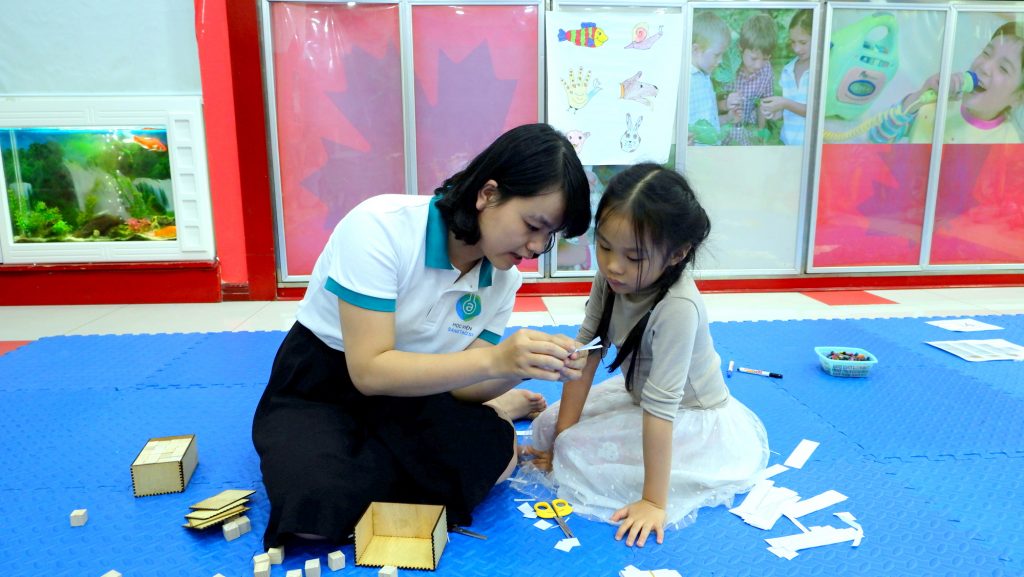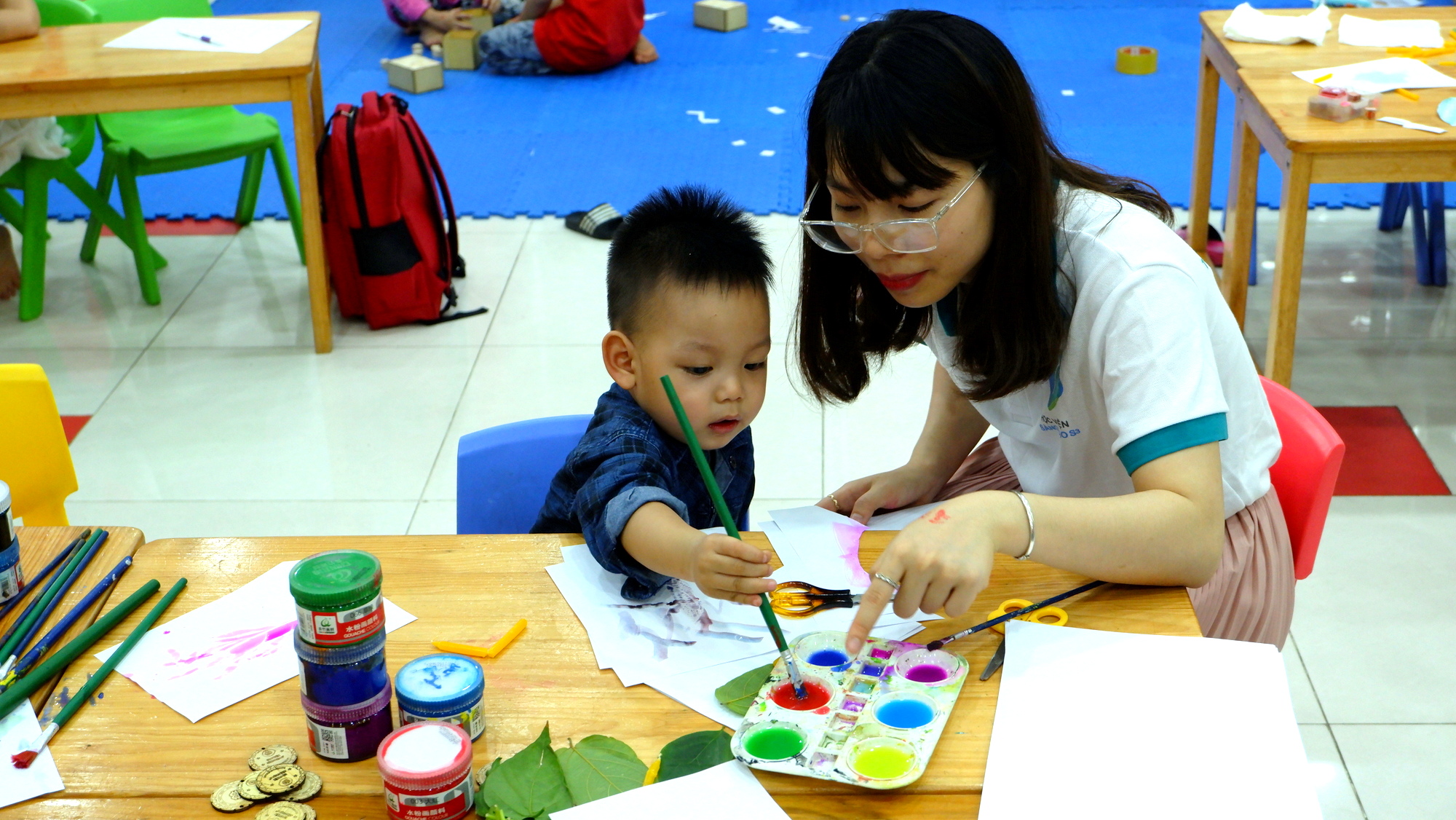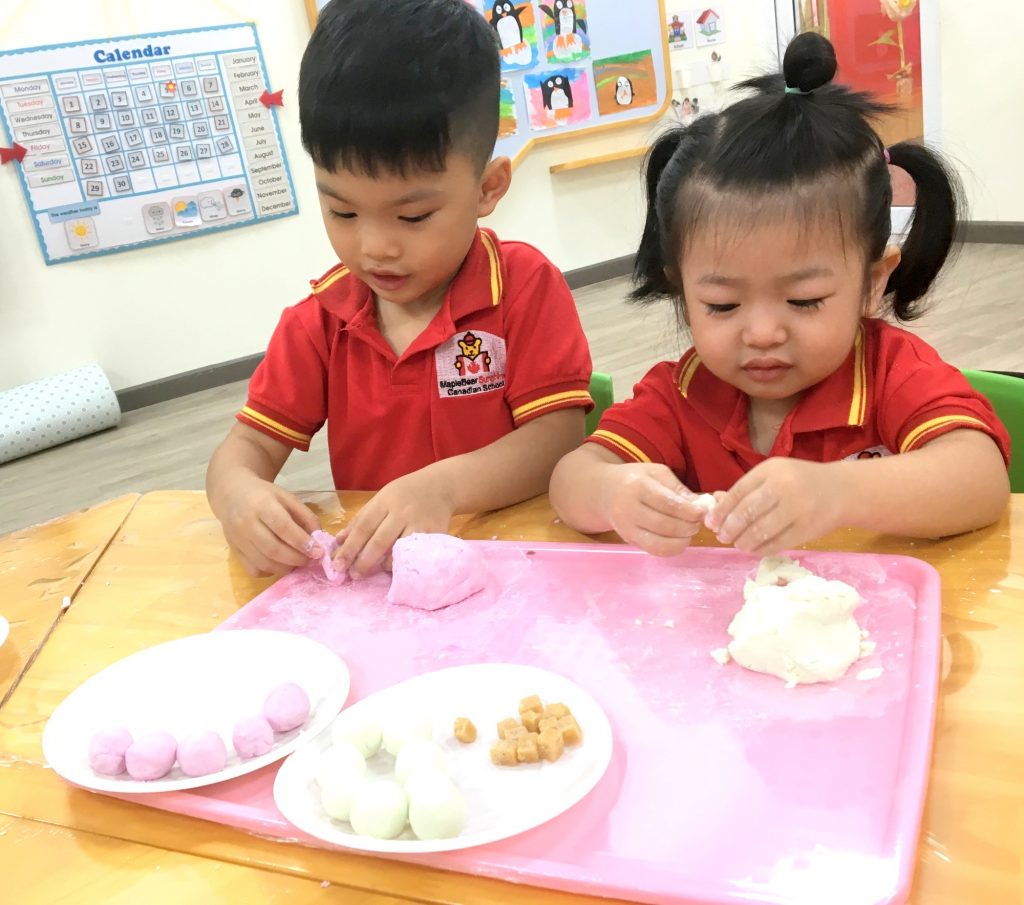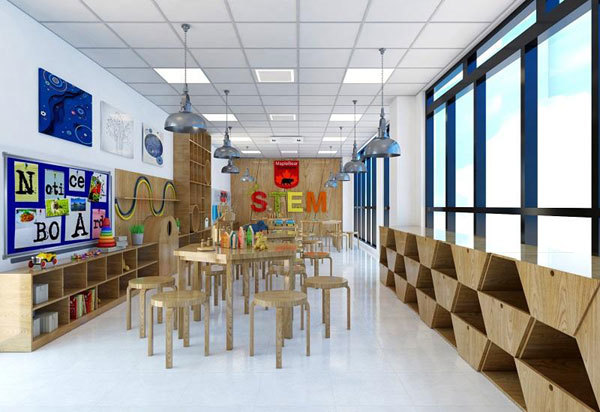Many parents have studied with their children but are still confused about how to do it effectively. Because there are studies that show some cases where parents studying with their children have made their children worse, some parents share that they should not study with their children. Sunshine Maple Bear Primary School would like to share the article of Assoc. Dr. Nguyen Huu Hop – Faculty of Primary Education – Hanoi National University of Education on this issue.
An example of a parent with a child
– Mom: What subjects did you study today?
– Children: Math, Vietnamese, Nature and Society, mom.
– Mom: Back then, I liked Nature and Society very much. So, what did you learn today? Or not?
– Child: “The magical ability of leaves”, I know more about leaves, mother.
– Mom: How is the main content?
Child: Leaves have three s: respiration, photosynthesis, and transpiration. The leaves of the plant have many benefits for humans.
– Mother: Good! Hey child, why do we feel cool when it’s sunny when we take shelter under the shade of a tree?
– Con: Because leaves transpire, reducing the air temperature there, leaves release oxygen to make breathing easier.
Mom: You’re right! But at the same time, respiring leaves also “take away” oxygen. So, then, is the amount of oxygen released and absorbed by leaves balanced?
Son: Well, I don’t know mom.
– Mom: When studying this lesson, did you ask the teacher anything?
– Son: I asked you, about the winter, the tree leaves no leaves, then, how is the photosynthesis and respiration process of the tree?
– Mom: Good question! How do you answer me?
– Con: She said, this question is very interesting. She smiled at her son, said that he went home to find out through books, internet, parents… and then let her and friends know about it in the next lesson.
– Mom: Then find out, I want to know that too.
– Son: I use the computer, can I ask you “Hump” to see mom..

Methods to learn with your child
- Be your child’s teacher: Parents can teach their children new things that they have not learned in school or help children apply what they have learned in everyday life. At that time, parents should put their children in problematic situations to create interest and stimulate children’s thinking. For example, after your child learns about rectangular area (grade 3), parents can ask: Our house is going to re-pave the yard with new bricks, how many bricks will you help me calculate, the area of the circuit is considered as trivial?
- Be friends with your child: Parents and children solve problems related to learning (do homework with their children, discuss and argue with their children, solve problem situations with their children…). Example: On Sunday morning, mother and daughter will go to the market to buy food for lunch with guests. My mother plans to spend 300,000 VND for this. My mother and I shared the same table, how should we buy and sell?
- Be my student: Parents skillfully suggest and encourage children to recall and re-teach themselves the knowledge they have learned at school, in which, ask “questioning” questions to develop children’s thinking, highlighting questions. that children set for teachers at school, encouraging children to find out for themselves, find out what they want to know, want to help others know… In these cases, sometimes parents have to “pretend” not to know to Children assert themselves.
Why should you strengthen studying with your child?
- Creating a close relationship between parents and children, children feel the closeness and concern of their parents for them in general and for their studies in particular.
- Helping children feel the meaning of learning for their real life, giving them the habit of linking learning content with daily reality.
- Helping children learn in a gentle, effective and exciting way, through which, children consolidate their knowledge and form skills, especially thinking skills.
- Parents know their children’s schoolwork and academic performance; from there, take appropriate measures to compensate or develop the child’s ability.

Challenges of studying with your child
- Interrogate the child because “I am the father, the mother has that right” (this type of question makes the child afraid of being wrong, lack of confidence …).
- Force children, get angry with children when they fail (children panic, shrink and “ruffle the hedgehog” make co-learning fail).
- Lack of understanding about children’s abilities and abilities, giving content that is not suitable – too difficult or too simple (content that is not suitable easily makes children lose interest).
- Lack of time for children (if you ask a few questions every year or seven, it will have little effect).
- Parents lack pedagogical knowledge (parents who do not know how to ask interesting and reasonable questions and problems, it is difficult to stimulate thinking and interest in children or parents who want to “learn together” at this time). inappropriate points for children…).
 EN
EN  VN
VN EN
EN




Comments are closed.